The more I travel, the more I read, the more I ask and the more answers I have it becomes clear to me how little I really know about the world. How little I really know about the different realities faced by parents and their children throughout the world and in my home country, Colombia. In this particular case I talk about mothers or community fathers.
People who care for the children of others should be rewarded and celebrated but they are not. They work tirelessly and give everything of themselves but they are faced with a government that does not support their work (we are focussing ourselves in Colombia). They are faced with a government that states that for community mothers there is no money.
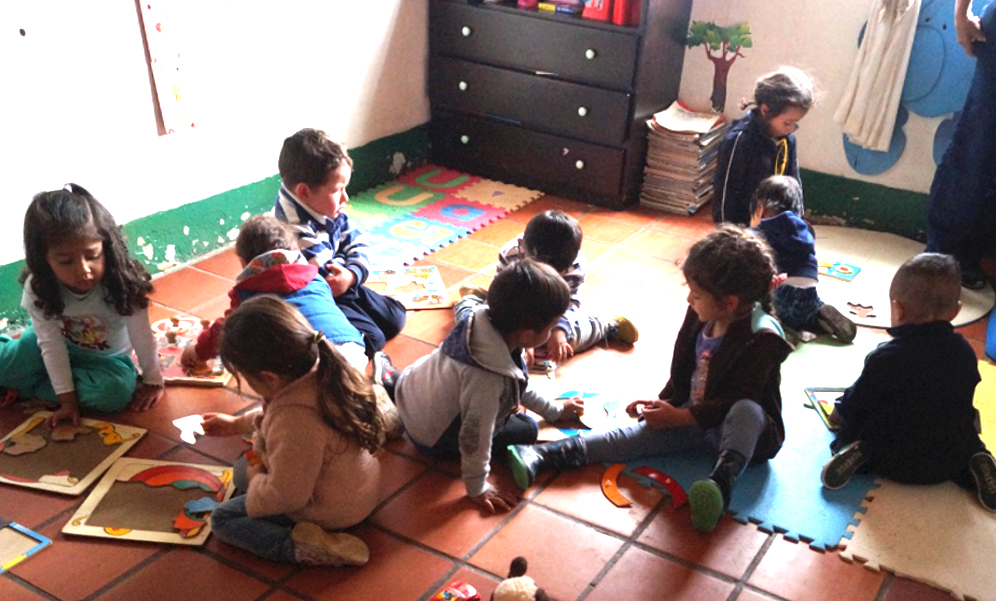
In theory, a social worker (exact translation from Spanish: community mother) should ensure the well-being of children, just as a mother would do with her own children at home. They must care for and protect minors who come from low-income families and who need to be cared for by someone while their parents are working or supporting them if they are unemployed, displaced, etc.
Social Workers in Colombia
The first thing is to define what they do. They are responsible for the care of children in the early childhood stages in the Family Welfare Community Homes program.
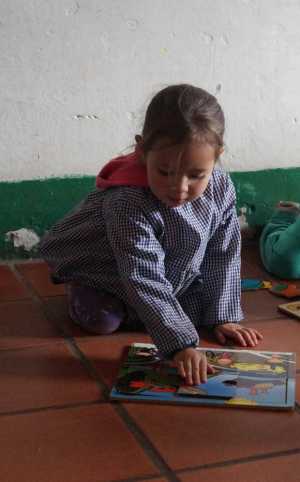
They are people recognized in the community for their solidarity, coexistence and commitment to the development of children and their families. This program was created in 1986 and was regulated in 1989.
There are around 69,000 social workers in Colombia. I love knowing that there are some men who also have this job.
They help 1 million 77 thousand children in the community modality of initial education, through the service of community homes in all its forms:
HCB- Traditional Community Welfare Homes: when a social worker (community mother), at home, opens a space to serve between 12 and 14 children.
FAMI Community Welfare Homes: are responsible for caring for pregnant and nursing mothers, and children up to two years, teaching families good care and parenting practices.
Grouped Community Welfare Homes: they are organized in groups of up to 4 traditional HCBs, in an infrastructure that is generally owned by the municipality. They serve children in larger and better suitable spaces.

I had the immense pleasure of being in contact with one of the many social workers in Colombia. Unintentionally I started asking many things and this is the result.
Early childhood
Childhood is perhaps the most crucial state in a persons development. During it the basis for who we will become are stablished.
It is the moment in our lives when we develop language and social codes for our daily life.
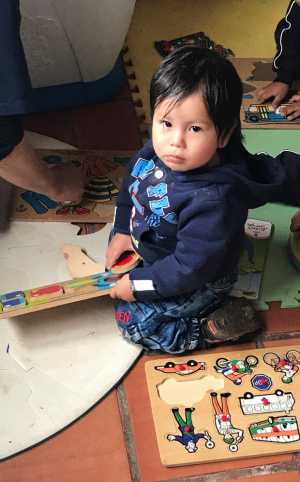
The family plays a decisive role in the integral development of all children. Affective bonds are built during early childhood.
In addition to the integral child development through an enriched, safe and protected environment, they are part of the rights of children.
Early childhood is defined as a period from birth to eight years of age, and constitutes a unique moment of growth in which the brain develops remarkably.
During this stage, children receive a greater influence from their environments and contexts.
The experiences lived by children during these years significantly influence their future possibilities.
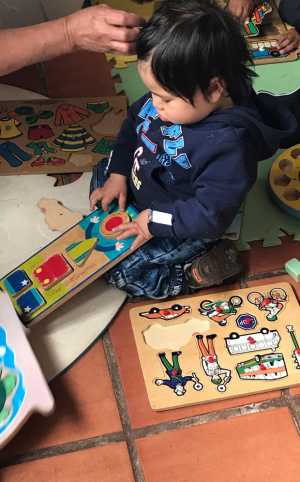
Studies from different disciplines show that these years are fundamental for physical, social and cognitive development.
During this period, children acquire the skills to think, speak, learn, reason and interact with others.
Initial education also contributes to reducing poverty and inequality. Likewise, it should foster in children experiences that stimulate their full personal development.m
Children from low-income families who have access to a good quality initial education are compensated for several shortcomings in the present and in the future.
Step by Step
Alcira Fruviño Muñoz was born in the Meta department but lives in Calera, Cundinamarca. She left after being displaced by violence. She tells me that her brother and two nephews were killed. They also lost all their possessions. She has six children (three girls and three boys) and a total of thirteen grandchildren.
On weekends she works in a house and during the week she is a social worker. But, it all started twenty-six years ago when he made a replacement for three months. She soon realized the great need for mothers who needed help to take care of their children.
At that time he earned a salary called Beca (18 pesos). This was equivalent to a quarter of the minimum wage. It is worth clarifying that this amount was what a social worker earned until 2014.
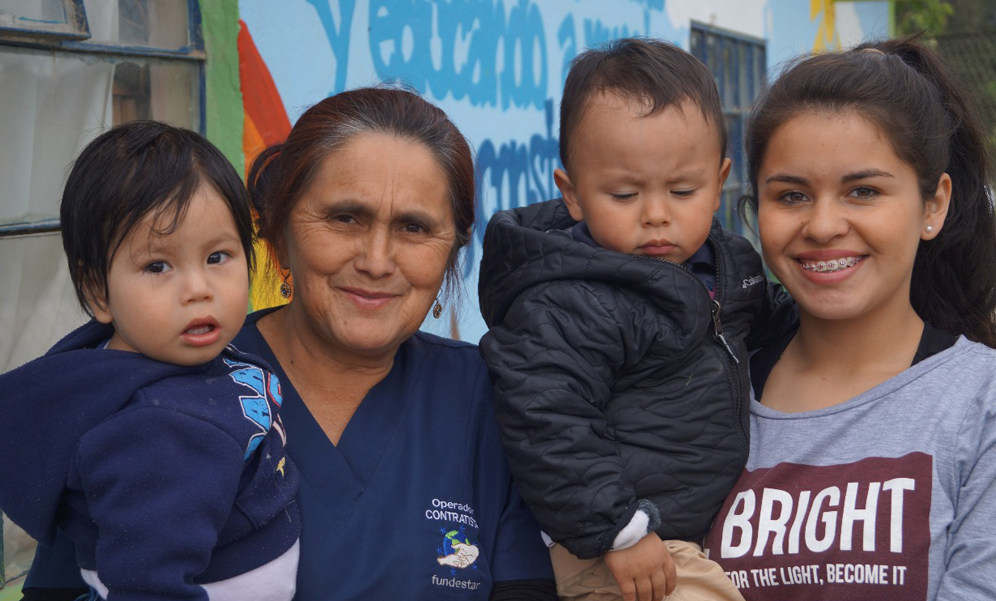
Laura Viera Abadía: What change in 2014?
Alcira Fruviño Muñoz: What changed was that we went from receiving 340 thousand pesos (around 98 USD) to receiving a minimum wage. They also paid us insurance and from that moment is quoted for the pension. They do not give us transportation allowance.
Going into detail, article 36 of Law 1602 of 2012 establishes that as of 2014, all community mothers must be hired by the administrative entities of the Community Welfare Homes Program and will earn a minimum salary or the equivalent of the number of Days worked during the month.
However, before this date, Family Welfare did not recognize that there was a reality contract with them. And in fact several judgments of the Court had refused to recognize him.
In the eye of the beholder
That a community mother has an employment contract has several advantages. Advantages such as the guarantee of the minimum wage, working hours not exceeding the maximum established by the Law, payment of social benefits, recognition of paid breaks and membership in the Comprehensive Social Security System.
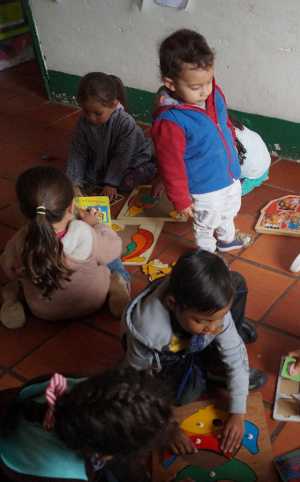
But, we are talking about social work. This means that there are an infinite number of problems and challenges that they face.
Just to name one of them, in November 2016, the Constitutional Court ordered the ICBF to pay the pension of 106 community mothers.
After receiving dozens of guardianships, the high court recognized that the mothers did hold an employment contract with the ICBF. The Institute was violating them, “their rights to equality, social security, human dignity, the vital minimum and to work” (as stated by the Colombian Constitutional Court).
Although this work is currently remunerated with the current legal minimum wage and with all its legal benefits, this profession should be recognized by the State and the same society.
This should be like that since not only a service that is being paid is being provided, but a solution is being provided to conflicts that involve the lives of many infants.
Her work
Her job as a community mother is to teach children everything that early childhood means. Develop values, fine and gross motor skills, physical, cognitive, body development. He teaches them to eat, to leave the diaper and go to the bathroom. She is dedicated to children all day.
Working long hours, in a demanding but enriching environment. It has a schedule from 6:00 am until 4:30 in the afternoon from Monday to Friday. Preparing breakfasts, meals, changing diapers, teaching them to eat, to play, to share. She is a cook, teacher and psychologist.

You must make individual folders of each child with their respective documentation. Deliver reports to the ICBF (Colombian Family Welfare Institute) every day and at all times meet the requirements of the operators that are the ICBF intermediaries. It also conducts training for parents.
Laura Viera Abadía: In what kind of homes do you work as a community mother?
Alcira Fruviño Muñoz: I work in a Community HCB. I am in charge of twenty children between fifteen months to five years and 11 months.
Alcira tells me that the difficult thing is to have to use our salary from our salary for fuel, pay for services or contribute to complement the feeding of children as they send us very little market. The easiest is a concept that exists. Only love for children and nothing else.
The challenges
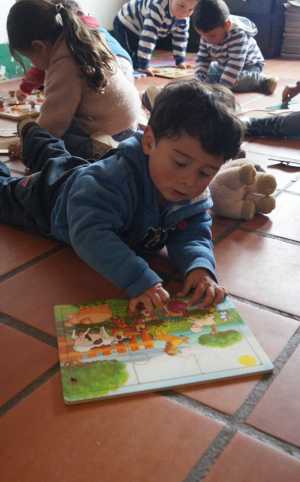
When Alcira started as a community mother, she was a bachelor, it was valid. She then studied a at the Sena and specialized in early childhood.
She has not earned enough money, so her dream of having her own a house has not been possible. In addition, supporting her six children, has always been her priority.
She works for the love of children. For her complete devotion for them. She is aware that they are low-income children and that they often lack affection, love, some have no father, others are displaced. They need support, a helping hand and Alcira gives them that.
She is very clear about the fact that although she knows that it is a complicated job, full of challenges and sometimes pain, the satisfaction of helping children is immense.
Without a doubt, the most difficult part of this work, she believes, is dealing with the parents and officials of the Colombian Family Welfare Institute (ICBF).
Concluding
People who have studied early childhood can be social workers. Previously, you only needed to have charisma with children but not now. It is necessary to have empathy, be responsible and caring people.
She has dedicated herself to children during her entire life. She has done it for love and without expecting anything in return. The small amount of money she has earned has been sacred and used to support her family. To give pleasure and education to her children. She is an inspiring woman, full of struggle, strength, humility, dedication and hope. She feels happy in the midst of needs.

In a society in which the rights of minors are violated on a daily basis, it is necessary to find people who dedicate their lives to provide, love, education, guidance and dedication to these children.
If raising a child is a complex task, caring for the children of others seems impossible. But, there are women who have achieved it. For more problems and difficulties that Alcira has faced, the love for children showed her that her life mission was to help them.


